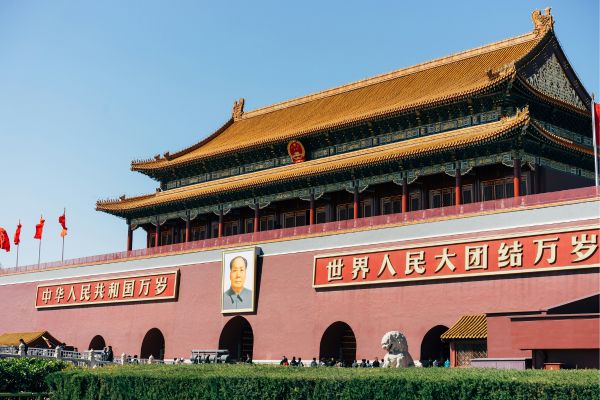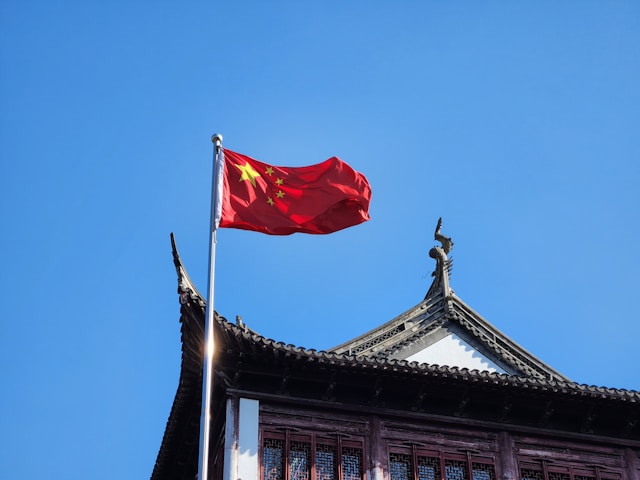
In April, the China Beijing Equity Exchange, in collaboration with its subsidiary China Beijing Green Exchange, assisted the Fengtai Primary People’s Court of Beijing (hereinafter “the Court”) in trading in a company’s Beijing Emissions Allowances (BEAs) through judicial enforcement proceedings. Over 10,000 tons of BEA were publicly traded on-site, with a transaction value of over CNY 1 million (or USD 139,585). This marked the first time a Beijing court has enforced a judgment by trading BEAs.
The company in question, due to poor operations, owed over CNY 20 million (or USD 2.8 million) in severance payments to more than 300 employees. In 2023, the employees applied to the Court for enforcement of the labor arbitration award. The Court discovered that in addition to conventional assets, the company also held BEA in the BEA management system.
Under Chinese law and the Supreme People’s Court’s “Opinions on Providing Judicial Support for Advancing Carbon Peaking and Carbon Neutrality”, carbon emission allowances are recognized as enforceable assets. The Court coordinated with the Beijing Municipal Ecology and Environment Bureau to place a provisional freeze on the company’s BEAs. After the company fulfilled its annual compliance obligations, the provisional freeze was converted into a formal freeze on the remaining BEAs. Under court supervision, the company subsequently sold over 10,000 tons of BEAs through the China Beijing Green Exchange within just 10 minutes. The proceeds of over CNY 1 million (or USD 139,585) was deposited into the Court’s enforcement account.
This case not only resolved the employees’ wage claims but also advanced green transformation, demonstrating the judiciary’s role in supporting China’s “dual carbon” goals.
Photo by Jéan Béller on Unsplash
]]>
On 21 May 2025, the Beijing International Commercial Tribunal (BICT) concluded its first circuit trial at the International Commercial Arbitration Center (Beijing), ruling in court to dismiss the motion by an offshore company (ECS) to invalidate an arbitration agreement. This case marks the first circuit trial conducted by China’s local international commercial courts/tribunals.
The dispute centered on whether ECS, an offshore company, was bound by the arbitration clause in the “2020 Shareholders Agreement”. ECS claimed that the agreement had been replaced by the “2021 Shareholders Agreement”, which ECS did not sign. The court, based on the principle of arbitration clause independence, held that despite differences in the signatories, the consistency of the arbitration clause content meant that changes in substantive rights and obligations did not affect its validity, and the arbitration clause in the “2020 Shareholders Agreement” remained valid for ECS.
According to data from the BICT, the average trial period for confirming the validity of arbitration agreements is 38.33 days, 26.57 days faster than the previous year — while foreign-related arbitration preservation reviews take just 5 days. The court has so far recognized and enforced 32 foreign arbitral awards, including those from international institutions such as the ICC International Court of Arbitration.
This circuit trial took place at the International Commercial Arbitration Center (Beijing), a physical platform launched in 2022 that integrates multiple dispute resolution services such as mediation, arbitration, and litigation.
Photo by Markus Winkler on Unsplash
]]>
This article was originally published in Conflict of Laws and is reproduced with the consent of the author, Meng Yu.
ABSTRACT
In around 2019, a Chinese court in Hebei Province refused to enforce a US default monetary judgment from a California court on the grounds that a valid arbitration agreement was in place (Sunvalley Solar Inc. v Baoding Tianwei Solarfilms Co. Ltd. (2019) Ji 01 Xie Wai Ren No. 3). This decision underscored the court’s reliance on the arbitration agreement’s validity, even though a subsequent legislative proposal to include arbitration agreements as an indirect jurisdictional filter in China’s Civil Procedure Law (2023 Amendment) was ultimately not adopted.
Key takeaways:
- In around 2019, a Chinese court in Hebei Province refused to enforce a US default monetary judgment issued by a California court, on the grounds of the existence of a valid arbitration agreement between the parties (Sunvalley Solar Inc. v Baoding Tianwei Solarfilms Co. Ltd. (2019) Ji 01 Xie Wai Ren No. 3).
- The Hebei Court held that the arbitration agreement was valid under Chinese law (the law of the seat of arbitration), since the parties did not specify the law governing the arbitration agreement.
- The Chinese company’s failure to appear in the California court did not constitute a waiver of the arbitration agreement, as the Hebei Court ruled that silence does not imply an intention to abandon arbitration.
- The proposed inclusion of "arbitration agreements" as one of the indirect jurisdictional filters in China's Civil Procedure Law (2023 Amendment) was ultimately not adopted, following legislative review which deemed it inappropriate to override foreign courts' determinations regarding the validity of such agreements.
What happens if a foreign court default judgment was rendered despite an arbitration agreement and is later submitted for recognition and enforcement in China?
A local Chinese court in Hebei Province refused to recognize and enforce such a default judgment issued by a California court in the United States, on the grounds that the US court lacked indirect jurisdiction due to the existence of a valid arbitration agreement (Sunvalley Solar Inc. v Baoding Tianwei Solarfilms Co. Ltd. (2019) Ji 01 Xie Wai Ren No. 3).
Although the full text of the judgment has not yet been made publicly available, a case brief is included in a recent commentary book - Understanding and Application of the Conference Summary of the Symposium on Foreign-related Commercial and Maritime Trials of Courts Nationwide[1] - authored by the Fourth Civil Division of China’s Supreme People’s Court (‘Understanding and Application’).
This raises an interesting and complex question: How would Chinese courts assess the indirect jurisdiction of the court of origin today, in particular, when an arbitration agreement is involved?
I. Case background
In January 2011, Sunvalley Solar Inc.(“Sunvalley”), a U.S. company, entered into an agreement with Baoding Tianwei Solarfilms (“BTS”), a Chinese company, for the manufacture of solar panels.
Sunvally later allegedly incurred damages due to defective equipment supplied by BTS and subsequently filed a lawsuit against BTS before the Superior Court of California, County of Los Angeles, US (“California Court”).
On 7 Sept. 2017, the California court rendered a default judgment (no. KC066342) in favor of Sunvalley, awarding a total amount of USD 4,864,722.35 against BTS.
In 2019, Sunvalley filed an application before the Shijiazhuang Intermediate People’s Court, Hebei Province, China (“Hebei Court”), seeking the recognition and enforcement of the California judgment (“US Judgment”).
II. Court’s Reasoning
Upon review, the Hebei Court held that the jurisdiction of a foreign court over a civil case is a prerequisite for courts to lawfully exercise judicial jurisdiction and also forms the basis upon which a foreign civil judgment may acquire res judicata and become entitled to be recognized and enforced in other countries.
In this case, the key issue was whether the arbitration clause agreed upon by the parties was valid, and if so, whether it excluded the jurisdiction of the California Court. This issue was essential in deciding whether the US Judgment could be recognized and enforced by the Hebei Court.
First, the Hebei Court examined the validity of the arbitration clause. In this case, the parties had only agreed on the governing law of the main contract, which was the laws of California, under Art. 15, Paragraph 1 of the “Procurement Contract”. The parties, however, had not specified the law governing the arbitration agreement. Accordingly, the Court deemed the arbitration clause to be governed by the law of the seat of arbitration, which in this case is Chinese law.[2] Under Art. 15, Paragraph 2 of the “Procurement Contract”, the parties had clearly expressed their intention to resolve their disputes through arbitration. According to the said provision, disputes arising out of the contract shall be submitted to the China International Economic and Trade Arbitration Commission (CIETAC). As such, the Hubei Court held that the arbitration clause met the requirements of Art. 16 of China’s Arbitration Law and was therefore valid.
Second, the Hebei Court considered whether BTS’s default constituted a waiver of the arbitration agreement. According to Art. II, Para. 1 of the New York Convention, Contracting States are required to respect valid arbitration agreements. Such agreements are not only legally binding on the parties but also have the legal effect of excluding the jurisdiction of national courts. This principle is fully consistent with Art. 5 of China’s Arbitration Law and Art. 278 of China’s Civil Procedure Law (CPL), both of which clearly provide that a valid arbitration agreement excludes court jurisdiction. If the parties intend to waive the arbitration agreement afterward, such waiver must be clear, explicit, and mutually agreed upon, in accordance with the general principle of contract modification. Mere non-appearance in court proceedings does not constitute a waiver of arbitration or submission to the jurisdiction of the California Court. In this case, the existence of a valid arbitration agreement remained unaffected by BTS’s failure to respond to the California Court’s summons. Accordingly, BTS’s silence could not be construed as an intention to waive the arbitration agreement. Thus, the California Court was deemed to lack jurisdiction over the case.
Third, the Hebei Court interpreted Art. 289 of the CPL, which provides for the recognition of “[J]udgments and rulings made by foreign courts that have legal effect”. The Court clarified that this refers specifically to judgments rendered by competent foreign courts. Judgments rendered by courts lacking jurisdiction, including in matters that should have been submitted to arbitration, do not qualify. Since the California Court issued its judgment despite the existence of a valid arbitration agreement, and without proper jurisdiction, the resulting US judgment could not be recognized and enforced under Chinese law.
Accordingly, the Hebei Court refused to recognize and enforce the US judgment.
III. Comments
Clearly, the existence of a valid arbitration agreement was the decisive reason why the Hebei Court found that the California court lacked proper indirect jurisdiction and thus refused to recognize the judgment it rendered.
While it may seem straightforward that a valid arbitration agreement generally precludes litigation before a court, the extent to which such an agreement influences the review of a foreign court’s indirect jurisdiction raises a more nuanced and compelling question. This very issue was at the heart of legislative debates during the drafting of China’s recently amended CPL (“2023 CPL”), which entered into force on 1 January 2024.
1. The jurisdiction filter once in the draft
Interestingly, the existence of a valid arbitration agreement was initially included as one of the filters for assessing the indirect jurisdiction of foreign courts in the 2023 CPL Draft Amendment (see Art. 303, Para. 4 of the 2022 CPL Draft Amendment on indirect jurisdiction). Similar judicial views pre-dating the Draft can also be found in Art. 47 of the “Conference Summary of the Symposium on Foreign-related Commercial and Maritime Trials of Courts Nationwide”, as well as in the commentary on that Article authored by the Fourth Civil Division of the SPC in the Understanding and Application.
However, this proposed filter was ultimately removed from the final version of the 2023 CPL Amendment.
So why was this filter removed? We can find the answer in the legislative review report on the Draft, the “Report on the Review Results of the ‘CPL Draft Amendment’” issued on Aug. 28, 2023, by the Constitution and Law Committee of the National People’s Congress (NPC) to the NPC Standing Committee:
“[S]ome members of the Standing Committee suggested that Paragraph 4 was inappropriate. If the arbitration agreement has been deemed invalid by a foreign court and thus jurisdiction is assumed, Chinese courts should not easily deny the jurisdiction of the foreign court. It is recommended to delete it. The Constitution and Law Committee, after research, suggested adopting the above opinion and making corresponding amendments to the provision.”
2. What now?
If this case were to occur today, how would a Chinese court approach it? In particular, if there were a valid arbitration agreement between the parties, would the court still assess the indirect jurisdiction of the foreign court based on that agreement, if so, how?
This brings us back to the current rules on indirect jurisdiction set out in Art. 301 of the 2023 CPL. It is important to note that where the foreign judgments originates from a country that has entered into a bilateral treaty on judicial assistance with China, the indirect jurisdiction rules in the treaty - rather than those in the CPL - will govern the recognition and enforcement process.
Related Posts:
- What’s New for China’s Rules on Foreign Judgments Recognition and Enforcement? - Pocket Guide to 2023 China’s Civil Procedure Law (1)
- Thus Spoke Chinese Judges on Foreign Judgments Recognition and Enforcement: Insights from Chinese Supreme Court Justices on 2023 Civil Procedure Law Amendment (4)
Under Art. 301 of the CPL, China adopts a hybrid approach to assessing indirect jurisdiction, one that combines the law of the rendering court and the law of the requested court. Specifically, for a foreign judgment to be recognized and enforced by Chinese courts, the foreign rendering court must meet the following jurisdictional requirements:
(1) it first must have had jurisdiction under its own national laws;
(2) even if a foreign court had jurisdiction under its own national laws, it must also maintain a proper connection with the dispute. If such a connection is lacking, the foreign court will still be considered incompetent for the purpose of recognition and enforcement in China.;
(3) The foreign court will also be deemed incompetent if its exercise of jurisdiction
a) violates Chinese courts’ exclusive jurisdiction under 279 and Art. 34 of the 2023 CPL, or
b) contradicts a valid exclusive choice-of-court agreement between the parties
In the context of the hypothetical scenario involving an arbitration agreement, a Chinese court would primarily examine the situation under Art. 301, Para. 1 of the CPL. This provision requires the court to consider whether the foreign court properly determined the validity of the arbitration agreement in accordance with the law of the country where the judgment is rendered and thereby determine whether it had jurisdiction.
a) If the foreign court determined that the arbitration agreement was invalid and exercised jurisdiction accordingly under its own law, a Chinese court would generally not deny the foreign court’s jurisdiction (unless it finds that the foreign court lacked proper connection with the dispute). This approach is also consistent with the legislative intent expressed by the NPC Constitution and Law Committee.
b) If the foreign court did not consider or address the validity of the arbitration agreement (as may occur, g., in a default judgment like in the Sunvalley case), how should the Chinese court evaluate the agreement’s validity during the recognition and enforcement stage? This raises a key unresolved issue: Should it assess the validity of the arbitration agreement according to the rules of Chinese private international law, or instead refer to the conflict-of-law rules in the State of origin? The 2023 Civil Procedure Law does not provide a clear answer to this question. As such the issue remains to be tested in future cases.
Related Posts:
- China Issues Landmark Judicial Policy on Enforcement of Foreign Judgments - Breakthrough for Collecting Judgments in China Series (I)
- First Case of Reciprocal Commitment: China Requests Azerbaijan to Enforce its Judgment Based on Reciprocity
- US-China Judgments Recognition and Enforcement
[1] The Fourth Civil Division of China’s Supreme People’s Court, Understanding and Application of the Conference Summary of the Symposium on Foreign-related Commercial and Maritime Trials of Courts Nationwide [Quanguo Fayuan Shewai Shangshi Haishi Shenpan Gongzuo Zuotanhui Jiyao Lijie Yu Shiyong], People’s Court Press, 2023, pp. 332-333.
[2] Cf. Art. 18, 2010 Law of the People's Republic of China on Choice of Law for Foreign-related Civil Relationships (2010 Conflicts Act)
]]>
In May 2025, the Shanghai International Commercial Court (SHICC) issued its first investigation order to support a request for interim measures by the Shanghai International Economic and Trade Arbitration Commission (Shanghai International Arbitration Center, SHIAC). This move represents the first time a Chinese court has assisted in evidence collection for international commercial arbitration through an investigation order, highlighting Shanghai’s efforts to create an arbitration-friendly judicial environment.
The case involves a cross-border data service contract dispute among a Hong Kong company, a foreign company, and a Jiangxi-based company. The arbitral tribunal needed to verify the identity of the transaction representative via a WeChat account to determine the contract’s validity, but was unable to obtain the necessary account registration information, resulting in a deadlock. After the arbitration institution failed to obtain evidence from a third party, the tribunal issued an interim measures decision under the “Arbitration Rules of the SHIAC” (上�v国际仲裁中心仲裁规则) and submitted an investigation order application through the Shanghai court’s “one-stop” international commercial dispute resolution platform.
Upon review, the court confirmed that the evidence was relevant and necessary to the case, that the parties and tribunal could not obtain it independently, and that the interim measures complied with procedures. It thus issued the investigation order in accordance with the “Measures of the Shanghai High People’s Court on Issuing Investigation Orders to Assist Arbitration in Evidence Collection (Trial Implementation)” (上�v市高�U��h民法院关于开兯���查��o(h��)协助仲裁调查取证的办�?试行)).
This action implements the 2023 “Regulation of the Shanghai Municipality on Promoting the Initiative for an International Commercial Arbitration Center” (上�v市推�q�国际商事仲裁中心徏设条�?, which allows arbitral tribunals to submit interim measures requests to courts for review and enforcement. This practice, for the first time, translates the “court assistance in evidence collection” clause in the “UNCITRAL Model Law on International Commercial Arbitration” (联合国国际��N易法委员�?x��)国际商事仲裁示范�? into domestic judicial procedures. The ruling demonstrates China’s judicial efforts to align with arbitration rules through operational procedures, strengthening support for cross-border commercial dispute resolution.
]]>

On 30 Apr. 2025, China’s top legislature, the Standing Committee of the National People’s Congress, adopted the “Private Economy Promotion Law of the People’s Republic of China” (中华人民共和国民营经���促�q�法, hereinafter the “Law”), which came into force on 20 May 2025.
This is China’s first fundamental law dedicated to the development of the private economy. Comprising nine chapters and 78 articles, the Law aims to ensure fair competition and optimize the business environment for private enterprises through mechanisms such as fair competition, investment and financing support, scientific and technological innovation incentives, standardized operations, service guarantees, and rights protection.
The highlights of the Law are as follows.
- The Law implements a unified national negative list for market entry, ensuring that private enterprises can compete fairly and guaranteeing the “permission unless prohibited” principle.
- The government is launching a CNY 3 trillion investment program in key sectors, allowing private enterprises to participate in major projects such as nuclear power, transportation, and renewable energy.
- Authorities are reducing government-backed financing guarantee fees to below 1% and increasing the non-performing loan tolerance ratio for small and micro businesses by 3 percentage points.
- A sci-tech finance innovation mechanism has been established, expanding intellectual property pledge financing pilots to 74 funds and rolling out tech M&A loans in 18 cities.
As of the end of January 2025, the number of registered private enterprises nationwide reached 56.707 million.
Photo by Rafik Wahba on Unsplash
]]>
On 24 Apr. 2025, China’s Supreme People's Court (SPC) and Supreme People’s Procuratorate (SPP) jointly released the “Interpretation on Several Issues Concerning the Application of Law in Handling Criminal Cases of Intellectual Property (IP) Infringement” (hereinafter the “Interpretation”, 关于办理�늊�知识产权刑事案�g适用法律若干问题的解�? along with typical cases. The Interpretation clarifies the standards for identifying criminal counterfeiting of registered service trademarks, thereby strengthening IP protection in the service industry.
Formulated based on Amendment XI to China’s Criminal Law, this Interpretation provides a new systematic explanation of IP crimes. It incorporates three previous related judicial interpretations, which are now repealed.
The Interpretation contains 31 articles and is divided into five parts, including provisions on trademark crimes, the crime of counterfeiting patents, copyright crimes, trade secret crimes, and general provisions on IP crimes.
Taking trademark crimes as an example, the Interpretation further clarifies the identification standards for “identical goods/services”, “identical trademarks”, and “registered trademark symbols” that have been highly disputed in practice. Building on previous judicial interpretations, the Interpretations adds provisions on the criterion for criminalization of trademark crimes, such as counterfeiting registered service trademarks.
China has intensified IP criminal enforcement in recent years. According to the SPP’s White Paper on IP Prosecution Work (2024) (知识产权���察工作白皮书�Q?024�Q?, in 2024, procuratorial organs nationwide accepted 1,338 cases involving 3,266 suspects for review and prosecution of copyright infringement crimes. This represents a year-on-year increase of 27.9% and 18.9% respectively. 2,090 individuals were prosecuted, an increase of 27.4% year-on-year.
]]>

The eight cases in this batch cover industries such as bio-pharmaceuticals, AI technology, and online gaming. Among them, Case 4—a ruling on “AI Face-Swapping” infringement—has drawn significant attention, offering judicial reference for global AI compliance.
Jiading Primary People’s Court, Shanghai ruled in the first instance of the Case (2024) Hu 0114 Min Chu No. 1326 (�Q?024�Q�沪0114民初1326�? that the applet “X Yan” developed by Shanghai Yi X Network Technology Co., Ltd., which used AI algorithms to replace users’ faces in others’ original videos, infringed the copyright owner’s right of communication through information network. The 13 involved short videos of ancient costume displays were filmed by Chen, whose original creative arrangement is legally protected.
Although “X Yan” only replaced facial features, the court held that the video scenes, movements, and other elements were substantially similar to the original work. Moreover, the company profited through advertisements and membership services, which did not constitute fair use or qualify as a technology neutrality defense. The court ultimately ruled for CNY 7,500 (or USD 1,040) in compensation, with neither party appealing.
This case clarifies that “AI Face-Swapping” does not constitute original adaptation or fair use of original works. Service providers using AI technology have a reasonable duty of care and must not use algorithmic technology to infringe others’ copyrights.
]]>

On 7 Apr. 2025, China’s Supreme People’s Court (SPC) released its 45th batch of guiding cases, focusing on enforcement implementation to unify judicial standards and enhance enforcement efficiency.
This batch of six cases addresses challenges in enforcement. They provide courts with practical guidance, improving efficiency while balancing mandatory force with humanitarian considerations.
For example, the Guiding Case No. 252, “Zhejiang X New Materials Co., Ltd. Enforcement Cases”, demonstrates centralized enforcement and the coordination between enforcement and bankruptcy proceedings. When a debtor faces multiple enforcement cases across different regions, a higher court may designate one court for centralized enforcement, thus avoiding procedural duplication and reducing litigation costs.
In this case, when the debtor company under enforcement entered pre-restructuring due to debt issues, the court assigned all relevant cases to a court with bankruptcy jurisdiction. This approach facilitates effective coordination between enforcement and bankruptcy proceedings and protects creditors’ rights and creates opportunities for corporate restructuring.
Statistics show that Chinese courts nationwide concluded 9.1182 million enforcement cases in 2024, with enforced amounts over CNY 2 trillion (or USD 277.8 billion). However, challenges like inter-regional coordination and conflicts in multi-case enforcement continue to hinder enforcement quality and efficiency. In response, the SPC compiled these guiding cases to strengthen enforcement standardization.
]]>

The Notice aims to stimulate inbound consumption and promote Chinese-made products in international markets by lowering the refund threshold, expanding refund coverage, and improving service convenience.
The highlights are as follows.
- Lower Refund Threshold: The minimum purchase amount eligible for tax refund has been reduced from RMB 500 to RMB 200. This allows more specialty stores and souvenir shops, which typically have lower average transaction values, to participate in the tax refund program, thereby boosting sales of Chinese products.
- Higher Cash Refund Limit: The cap for a single cash refund transaction has been increased from RMB 10,000 to RMB 20,000. Multiple refund channels are supported, including mobile payments and bank cards.
- Expanded Tax Refund Store Coverage: Business districts, tourist attractions, and airports are encouraged to add more tax refund counters. Newly established stores with a tax credit rating of M are now eligible to apply for qualification. The record-filing process has been shortened to five working days.
In recent years, China’s visa-free policy has fueled a surge in inbound tourism. Currently, China grants unilateral visa-free access to citizens of 38 countries and transit visa-free access to citizens of 54 countries, with an extended stay of up to 240 hours. According to data, China received 26.94 million foreign visitors in 2024, marking a 96% year-on-year increase. Their total spending reached USD 94.2 billion, up 77.8%. In the first quarter of 2025, the number of foreign inbound tourists reached 9.215 million, marking a 40.2% year-on-year increase. The strengthened tax refund policy continues to significantly boost inbound consumption.
Photo by 天琦 �?/a> on Unsplash
]]>
On 16 Apr. 2025, China’s Ministry of Human Resources and Social Security and the Supreme People’s Court (SPC) jointly released the fourth batch of typical cases of labor and employment disputes.
This series includes five cases, with Case No. 2 specifically reinforcing the prohibition against employers reducing the salary or benefits of pregnant employees under the pretext of job reassignment. This case further strengthens the judicial protection of labor rights.
In this case, the employer was found to have violated the law by transferring and reducing the salary of a female employee due to her pregnancy. After Zhao, an engineer of a technology company, became pregnant in 2023, the company unilaterally removed her from her project team and reassigned her to a different position without her consent or negotiation. This resulted in a salary reduction from RMB 17,000 to RMB 3,000 per month (slightly above the local minimum wage). The arbitration committee ruled that the company must pay Zhao the wage difference. The court noted that the employer neither proved that Zhao was “unfit for her original duties” nor obtained her consent for the reassignment. These actions violated the “Law on Safeguarding the Rights and Interests of Women” (妇女权益保障�? and “Special Rules on the Labor Protection of Female Employees” (奌���工劳动保护特别规�?, constituting a disguised infringement on her labor rights during pregnancy.
Since 2017, the two departments have jointly selected and released typical cases, with three previous batches totaling 31 cases covering issues such as excessive overtime and new forms of employment.
Related Post:
Photo by michelle mirabell on Unsplash
]]>
On 9 Apr. 2025, China’s State Council released the revised “Regulation on Marriage Registration” (婚姻登记条例), which came into force on 10 May 2025.
The revised Regulation aims to improve the accessibility of marriage services, support family relationships, and advance digital infrastructure in response to population mobility and evolving societal needs.
The highlights are as follows.
- Nationwide Access to Marriage Registration: The revised Regulation eliminates the requirement to register marriages and divorces in one’s place of household registration, allowing individuals to register for marriage, divorce, or certificate replacement in any location across the country. Previously, 21 provinces had piloted inter-provincial processing. The revised Regulation expands the service to the entire nation.
- Streamlined Procedures: The requirement to submit a household registration booklet for marriage registration has been abolished. Online appointment booking and pre-submission of materials are encouraged to reduce on-site processing time. Registration authorities may also provide personalized services such as certificate issuance ceremonies and encourage family participation.
- Alignment with the Civil Code: The revised Regulation specifies that divorce registration shall include a mandatory 30-day “cooling-off” period, aligning the administrative process with provisions in the Civil Code.
Photo by Sandy Millar on Unsplash
]]>
On 26 Mar. 2025, China’s Supreme People’s Court (SPC) released the “Notice on Procedural Matters for Civil Cases Involving Foreign State Immunity” (hereinafter the “Notice”, 关于涉外国国家豁免民事案件相关程序事��的通知), which provides unified guidance for Chinese courts in applying the Foreign State Immunity Law and adjudicating cases involving foreign state immunity.
The Foreign State Immunity Law, which took effect on 1 Jan. 2024, is an important legislative step reflecting China’s adaptation to the evolving diplomatic landscape. The Law signifies China’s shift from absolute immunity to restrictive immunity with respect to foreign state immunity.
The Notice outlines eight procedural provisions addressing key aspects of foreign state immunity, such as case acceptance, centralized jurisdiction, service of process, review of jurisdictional immunity claims, and the acquisition of certification documents from the Ministry of Foreign Affairs.
Chinese courts will adopt a centralized jurisdiction mechanism for these major and novel types of foreign-related civil cases involving foreign state immunity. Intermediate people’s courts with jurisdiction over foreign-related civil and commercial cases in the provincial capital cities will be designated to handle such cases.
At the acceptance stage, if the plaintiff names a foreign state as either a defendant or a third party, they must specify the legal basis and applicable exceptions in the complaint. Courts are obligated to provide clarifications, and if the plaintiff fails to provide the required basis, the case will not be accepted.
Regarding procedural reviews, courts are required to examine ex officio whether the immunity claim of the foreign state concerned is valid. A foreign state’s participation in jurisdictional challenge proceedings does not constitute consent to jurisdiction.
Photo by Dominic Kurniawan Suryaputra on Unsplash
]]>
On 23 Mar. 2025, China’s State Council released the “Provisions on the Implementation of the Anti-Foreign Sanctions Law of the People’s Republic of China” (hereinafter the “Provisions”, 实施《中华�h民共和国反外国制裁法》的规定), further refining the legal framework for countering foreign sanctions and enhancing its operability.
The Provisions specifies a wide range of countermeasures, including asset freezes (covering cash, equity, intellectual property, etc.), transaction restrictions (in areas such as trade, technology, and culture), as well as prohibitions on investment and cross-border data transfers. The Provisions also strengthens enforcement mechanisms by requiring coordinated efforts among relevant authorities and authorizing sanctions, such as restrictions on imports, exports, and data transfers, against entities that refuse to comply with countermeasures.
Notably, the Provisions extends the reach of countermeasures into the judicial arena. If a foreign country, organization, or individual harms China’s sovereignty, security, or development interests through lawsuits or other legal actions, the relevant parties may be placed on a countermeasure list.
This Provisions complements the 2021 Anti-Foreign Sanctions Law and aims to safeguard national interests in a complex international landscape.
]]>

On 17 Mar. 2025, the Shanghai Maritime Court concluded a case on the validity of an ad hoc arbitration agreement, providing judicial support for Shanghai’s efforts to develop an international commercial arbitration center. This was the first such case following the implementation of the “Regulations on Promoting the Development of the International Commercial Arbitration Center in Shanghai” (上�v市推�q�国际商事仲裁中心徏设条�?.
The dispute arose between two companies registered in the Shanghai Free Trade Zone over the transportation, customs clearance, and port-related fees for a batch of imported goods. In November 2024, the parties signed an Ad Hoc Arbitration Agreement (hereinafter the “Agreement”), agreeing to arbitrate in Shanghai under the Ad Hoc Arbitration Rules of the Shanghai Arbitration Association (hereinafter the “Rules”, 上�v仲裁协会(x��)临时仲裁规则), with a sole arbitrator. However, due to a disagreement over the validity of the Agreement, one party filed a lawsuit seeking confirmation of its validity.
The court found that the parties had expressed a clear intent to arbitrate and that the contract contained foreign-related elements. Although the Agreement did not directly designate an arbitrator, the Rules referred to in the Agreement provided a method for appointing one, thereby satisfying the requirement of a “designated person”. Accordingly, the court affirmed the validity of the Agreement.
This case sets a judicial precedent for the use of ad hoc arbitration in China and supports Shanghai’s efforts to establish itself as an international commercial arbitration center.
Photo by Claire Chang on Unsplash
]]>
On 14 Mar. 2025, China’s Supreme People’s Court (SPC) issued the “Interpretation on Several Issues Concerning the Application of Law in the Trial of Civil Dispute Cases Involving Prepaid Consumption” (关于审理预付式消�Ҏ(gu��)��事纠�U�h��仉���用法律若干问题的解�? hereinafter the “Interpretation”), clarifying judicial rules to address rampant issues such as “merchant absconding with prepayments” and “unfair contract terms”. Six typical cases have also been published.
Prepaid consumption is widely used in China’s catering, fitness, and education sectors, but has been the subject of frequent disputes.
The Interpretation specifically regulates “unfair contract terms”. Clauses such as “no refund after payment”, “no replacement of cards if lost”, and “restrictions on transferring membership cards” will be deemed invalid by courts. In addition, contract terms that require arbitration, but whose arbitration fees far exceed the amount of prepayment, are considered invalid as they unreasonably increase the cost of protecting consumer rights. For “absconding with prepayments”, businesses that maliciously shut down to avoid debts will be subject to punitive damages, and suspected criminal activities will be referred to the police.
Additionally, the Interpretation affirms consumers’ right to terminate prepaid contracts and claim unconditional refunds within seven days of payment, except in cases where identical goods or services have been used.
The six typical cases include scenarios such as “professional store closure facilitators” aiding debt evasion and gyms restricting membership transfers.
The SPC has emphasized its collaboration with administrative departments to combat prepaid consumption abuses and standardize the market through case guidance.
Photo by Christian Lue on Unsplash
]]>
On 13 Mar. 2025, China’s Supreme People’s Procuratorate (SPP) released the 56th batch of guiding cases, focusing on the supervision of effective civil judgments (also known as “supervision of civil adjudication”). These cases cover disputes such as private loans and traffic accident liability.
Supervision of effective civil judgments is one of the key functions of Chinese procuratorates, enabling them to correct erroneous court rulings, safeguard the legitimate rights of parties, and uphold judicial fairness.
For example, in the case Construction Company v. Huang and Zhang over a private loan dispute (Case No. 224), the Jiangxi Provincial People’s Procuratorate found that the Jiangxi High People’s Court had failed to proactively verify whether the guarantee period had expired, resulting in an erroneous judgment. Thus, the Procuratorate appealed the case to the SPP. After a thorough review of the debt repayment date, guarantee period, and other aspects, the SPP filed an appeal to China’s Supreme People’s Court (SPC). The SPC ultimately adopted the appeal, and issued a retrial judgment that revoked the original first and second-instance judgments.
Statistics show that in 2024, Chinese procuratorates accepted over 280,000 civil prosecution cases, including more than 80,000 cases involving supervision of effective civil judgments, marking a year-on-year increase of 6%.
]]>

On 19 Mar. 2025, during the 2025 National Two Sessions, China’s Supreme People’s Court’s (SPC) work report highlighted a landmark case—China’s first tort lawsuit under the PRC Anti-Foreign Sanctions Law. This case marks the first time that a Chinese court accepted the case under this law and facilitated a settlement, allowing a domestic company to recover over CNY 84 million in construction payments.
The case originated in September 2023, when a Chinese company contracted with a European company to build and install a water treatment module for a Floating Production Storage and Offloading (FPSO) vessel. The project was completed and delivered. However, in early 2024, the Chinese company was added to a third country’s Specially Designated Nationals (SDN) list. The European company then invoked sanctions to withhold payment and cut off communications.
Faced with unfavorable overseas arbitration clauses, the Chinese company invoked the PRC Anti-Foreign Sanction Law as a legal basis for relief and filed a lawsuit in China. On 18 Sept. 2024, the court approved an application of maritime preservation. The case was formally accepted on October 11 and resolved through mediation within 39 days, ensuring full payment.
Photo by Road Trip with Raj on Unsplash
]]>
In 2022 and 2023, CJO posted about two joint webinars between the Singapore-based Asian Business Law Institute (ABLI) and the Permanent Bureau of the Hague Conference on Private International Law (HCCH) on cross-border commercial dispute resolution, focusing on the Service Convention and the Choice-of-Court and Judgments Conventions, respectively. The two organizations return this year with their fourth joint session, this time on electronic service of documents and remote taking of evidence.
Titled Cross-border Commercial Dispute Resolution – Electronic Service of Documents and Remote Taking of Evidence, the webinar will take place on Thursday July 10 between 5 to 6:10pm (Beijing/Hong Kong/Singapore time), and is expected to discuss, among others, electronic transmission of requests under the Service Convention, such as the use of IT for communication among Central Authorities and other competent authorities, service by electronic means across different jurisdictions, and remote taking of evidence by video-link and electronic evidence under the Evidence Convention.
Invited speakers include Melissa Ford, Secretary of HCCH, Lucinda Orr, Partner of Enyo Law LLP, Justice Anselmo Reyes, International Judge of the Singapore International Commercial Court, and Dr Xu Guojian, Senior Partner of SGLA Law Firm.
For more information or to register, click here.
Early bird discount is available till 10 June.
Queries about the webinar can be directed to Catherine of ABLI at abli_info@abli.asia.
]]>

On 14 Feb. 2025, China’s Cyberspace Administration released the “Measures for the Administration of Personal Information Protection Compliance Audits” (个�h信息保护合规审计���理办法, hereinafter the “Measures”), which shall come into force on 1 May 2025. The Measures clarifies corporate obligations in compliance audits to strike a balance between data utilization and personal information protection.
In recent years, China has established a data protection framework through the “Personal Information Protection Law” (个�h信息保护�? and the “Regulations on Network Data Security Management” (�|�络数据安全���理条例), which require companies to conduct regular compliance audits.
The Measures provides detailed implementation guidelines, specifying audit procedures, institutional qualifications, and rectification obligations to enhance the transparency and legality of personal data processing.
The highlights of the Measures are as follows.
- Companies that process the personal information of more than 10 million individuals shall conduct audits at least once every two years, while other companies can determine a reasonable frequency.
- If regulatory authorities identify major risks (e.g., data breaches or user rights violations), they may require the company to commission a third-party professional audit.
- The same professional institution or any of its affiliated institutions or the same person in charge of compliance audits shall not conduct personal information protection compliance audits for the same auditee for three or more times in a row.
Photo by manos koutras on Unsplash
]]>
On 24 Feb. 2025, China’s Supreme People’s Court (SPC) released eight typical cases related to telecom and online fraud and associated crimes, underscoring the intensified crackdowns on such offenses.
The series of cases involves crimes such as fraud, illegal border crossings, money laundering, and the sale of personal information, shedding light on new operating models used by criminal groups.
For instance, in Case No.3, two defendants, Xiao and another individual, lured, solicited, and recruited minors into telecom fraud schemes. They falsely advertised a so-called “mobile phone project”, claiming that participants only needed two mobile phones and could make money without doing anything, and enticed minors who lacked the ability to distinguish between right and wrong to participate in the implementation of the fraud. The defendants first bought SIM cards from underage individuals and then organized minors to make scam calls, providing direct assistance to fraudsters and sharing illegal profits. The court found them guilty of fraud with aggravating circumstances and sentenced them to 4.5 and 5.5 years in prison, respectively.
According to the SPC’s 2024 Work Report, Chinese courts concluded 31,000 telecom fraud cases involving 64,000 individuals in 2023, a year-on-year increase of 48.4%.
Photo by Vidar Nordli-Mathisen on Unsplash
]]>